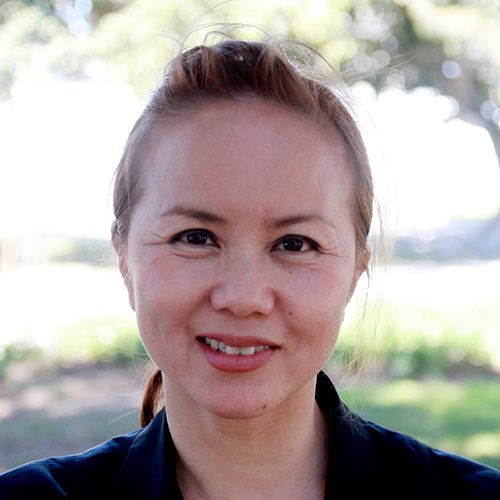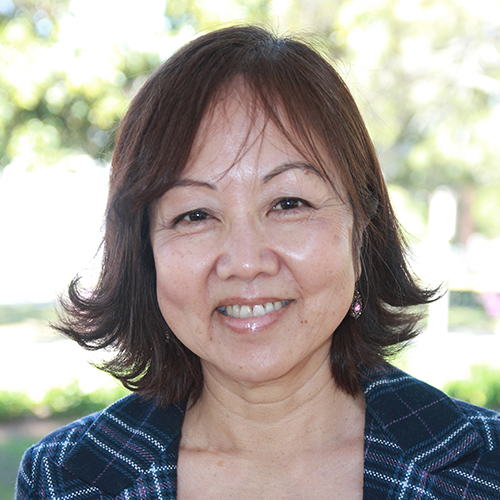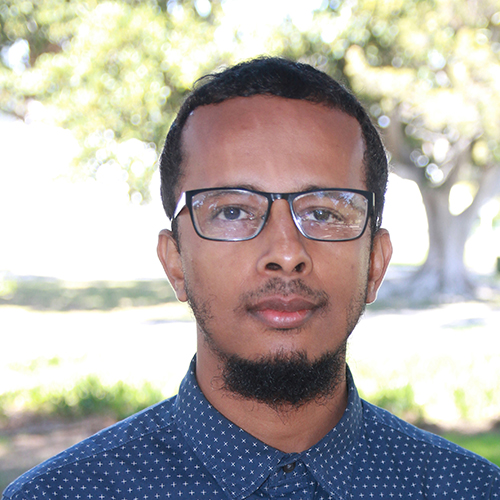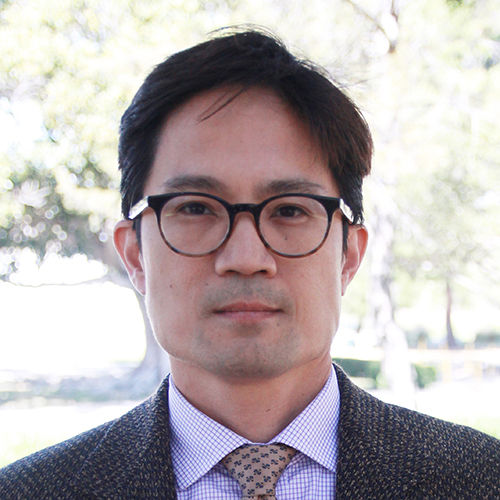Residential Research Groups (RRGs) are the longest-standing grant program at UCHRI, and these groups remain the cornerstone of our grantmaking activities. RRGs are in essence teams of researchers—often unknown to one another before residency—who convene at UCHRI for one quarter to accomplish a commonly-defined research agenda. In Spring 2016, UCHRI hosted a residential research group that focused on the emergent scholarship surrounding critical refugee studies. Composed of faculty, graduate students, and scholars from throughout the UC system, this RRG sought to chart the space as “an interdisciplinary field that re-conceptualizes the refugee not as an object of rescue but as a site of social and political critiques, whose emergence when traced, would make visible the processes of colonization, war, and displacement.” Traditionally, collaboration in RRGs may take many forms. Cooperation across disciplines elicits challenges of language, terminology, and methodology for all RRGs. The organizing premise of the residential research program is that when those challenges are surmounted, breakthroughs in knowledge are possible. To represent this interdisciplinary knowledge sharing, we have asked the RRG to craft an interdisciplinary bibliography that represents each individual member’s research and perspective on critical refugee studies. Taken separately, these materials represent key materials selected by scholars of an emerging field of study; when combined, the sources highlight the rich landscape of critical refugee studies and its potential to transform scholarship.
|
 |
Lan Duong (Co-Convener)
Media and Cultural Stuies | UC Riverside
Lan Duong is Associate Professor in the Media and Cultural Studies Department at UC Riverside.She is the author of Treacherous Subjects: Gender, Culture, and Trans-Vietnamese Feminism (Temple University Press, 2012). Dr. Duong’s second book project, Transnational Vietnamese Cinemas: Imagining Nationhood in a Globalized Era, examines Vietnamese cinema from its inception to the present day. She is also a poet and has been published in Watermark, Bold Words: A Century of Asian American Poetry, Tilting the Continent, and Crab Orchard Review.
|
|
Source:
Shire, Warsan. “Home.” SeekersHub, September 2, 2015. Accessed on May 26, 2016. http://seekershub.org/blog/2015/09/home-warsan-shire/
no one leaves home unless
home is the mouth of a shark
you only run for the border
when you see the whole city running as well
...
no one leaves home unless home chases you
fire under feet hot blood in your belly
Description:
My work animates the little known historical and political relations between Viet Nam, France, and Syria to place in relief the conditions that drive refugees to leave their homes and homelands. At heart, the project seeks to articulate how, in the words of Kenyan-born Somali poet, Warsan Shire, “home is the mouth of a shark.” In my writing, I examine the legacies of colonialism, wages of war, and systems of oppression that have compelled many to “run for the border” with “fire under feet.” In so doing, my work critiques dominant media, which often portray refugees as desperate asylum seekers needing humanitarian assistance. As a way to counter such imagery, the project asks, what does the art and literature of refugees look like?
|
|
 |
Yen Le Espiritu (Co-Convener)
Ethnic Studies | UC San Diego
Originally from Vietnam, Yen Le Espiritu is Professor and former Chair of the Department of Ethnic Studies at the University of California, San Diego. An award winning author, she has published widely on Asian American panethnicity, gender and migration, and U.S. colonialism and wars in Asia. Her most recent book is Body Counts: The Vietnam War and Militarized Refuge(es) (University of California Press, 2014). Her current project examines the Vietnamese refugees’ response to the Syrian refugee crisis for what it might tell us about the (im)possibilities of solidarity among refugees from the global South.
|
|
Source:
Setsu Shigematsu and Keith L. Camacho, editors. Militarized Currents: Toward a Decolonized Future in Asia and the Pacific. Minneapolis, MN: University of Minnesota Press, 2010.
Description:
This edited collection analyzes militarization as an extension of colonialism from the late twentieth century to the twenty-first century in Asia and the Pacific. Two arguments from the collection have influenced my writing on the Vietnam War and Vietnamese refugees: 1) how colonial histories constitute the conditions of possibility for ongoing forms of militarization; and 2) how U.S. wars in Asia and the Pacific have been key in structuring the displacements, dispersions and migrations of refugees to the United States and elsewhere. I thus situate my discussion of Vietnamese refuge(es) within the long, long duree of U.S. colonial expansion and war making in Asia.
|
|
 |
Mohamed Abumaye
Ethnic Studies | UC San Diego
Mohamed Abumaye is a PhD Candidate in the department of Ethnic Studies at UCSD. His work centers on the intersections between military and police violence. He investigates the San Diego police department’s unit of counter-terrorism and U.S. military drone attacks in Somalia as the transnational circuits of violence that shape somali refugee flight. What distinguishes his project from other works on police is that he focuses on the militarized aspects of policing, and does so with an emphasis on the refugee.
|
|
Source:
Hall, Stuart. Policing the Crisis: Mugging, the State, and Law and Order. London: Macmillan, 1978.
Description:
This book details how the British state utilizes discourses of anti-blackness to buttress police power and police violence against black communities. This work has been influential in providing me a lens to analyze how the San Diego police department deploys anti-blackness and islamophobia as a way to target Somalis refugees and legitimize violence against Somalis.
|
|
 |
Victor Bascara
Asian American Studies | UC Los Angeles
Victor Bascara is associate professor in the Department of Asian American Studies at UCLA. He is the author of Model Minority Imperialism, and he recently co-edited two journal issues: (with Lisa Nakamura) a special issue of Amerasia Journal (2014) on “Asian American Cultural Politics Across Platforms,” and (with Keith Camacho and Elizabeth DeLoughrey) a special issue of Intersections: Gender and Sexuality in Asia and the Pacific (2015) on “Gender and Sexual Politics of Pacific Island Militarisation.” His writings have recently appeared in such journals as the Asian American Law Journal (2014), American Literary History (2015), and GLQ (2015), and such collections as The Imperial University: Academic Repression and Scholarly Dissent (2014, ed. P. Chatterjee and S. Maira), Techno-Orientalism: Imagining Asia in Speculative Fiction, History, and Media (2015, ed. G. Huang, G. Niu, and D. Roh), and Filipino Studies: Palimpsests of Nation and Diaspora (2016, ed. M. Manalansan and A. Espiritu). He is currently completing a book on the relationship between Asian American cultural politics and the dismantling of formal U.S. empire from World War I to World War II.
|
|
Sources:
The documentary series on Southeast Asian youth by filmmaker Spencer Nakasako:
a.k.a. Don Bonus. Directed and produced by Spencer Nakasako. San Francisco, CA: Center for Asian American Media, 1995.
Kelly Loves Tony. Directed and produced by Spencer Nakasako. San Francisco, CA: Independent Television Service, 1998.
Refugee. Directed and produced by Spencer Nakasako. San Francisco, CA: Independent Television Service, 2004.
Description:
This groundbreaking series of documentaries critically and unprecedentedly expresses the experiences and perspectives of Southeast Asian refugee youth (from Laos and Cambodia) living in the San Francisco Bay Area in the 1990s and early 2000s. Each video is shot and narrated by the subjects themselves as they provide footage and reflections on everything from education and family to war and its aftermath. Both skillfully edited and compellingly raw, these documentaries are shot as video journals and are truly riveting viewing, as audiences follow the subjects recounting their remarkable everyday lives. The results are complex and edifying portraits of refugee experiences that might otherwise have been lost and/or entrusted to others for their representation.
|
Click here for Part II of this post.




